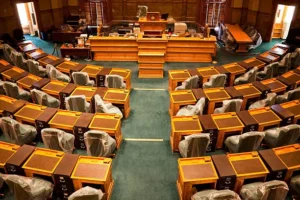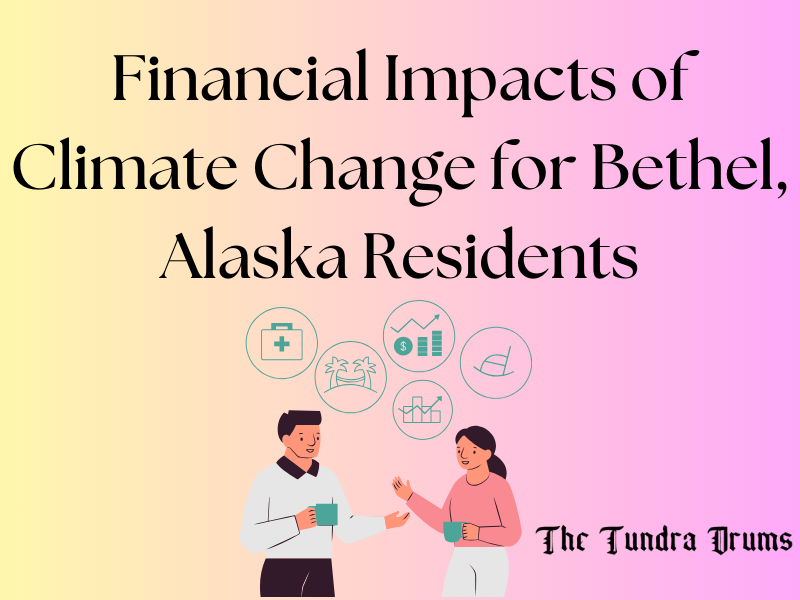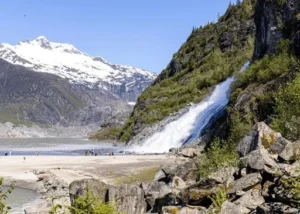Climate change impacts Bethel, a small town of about 6,500 people in the Yukon-Kuskokwim Delta. Residents face shifts in weather, rising temperatures, and thawing permafrost, which have direct financial consequences.
With the high cost of living, unpredictable winters are driving up heating costs, leading to higher energy bills. Food prices also rise due to disrupted supply chains and reduced local fish and game availability.
The financial impacts extend beyond daily expenses. Thawing permafrost is damaging homes and infrastructure, leading to costly repairs. The local economy, especially fishing and tourism, faces new challenges as the environment changes.
Understanding the financial impacts of climate change on Bethel is essential for its residents. By recognizing the challenges and planning, they can better manage the economic difficulties caused by climate change. This guide explores these impacts and offers strategies for building resilience.
Financial Impact of Climate Change in Bethel, Alaska Overview
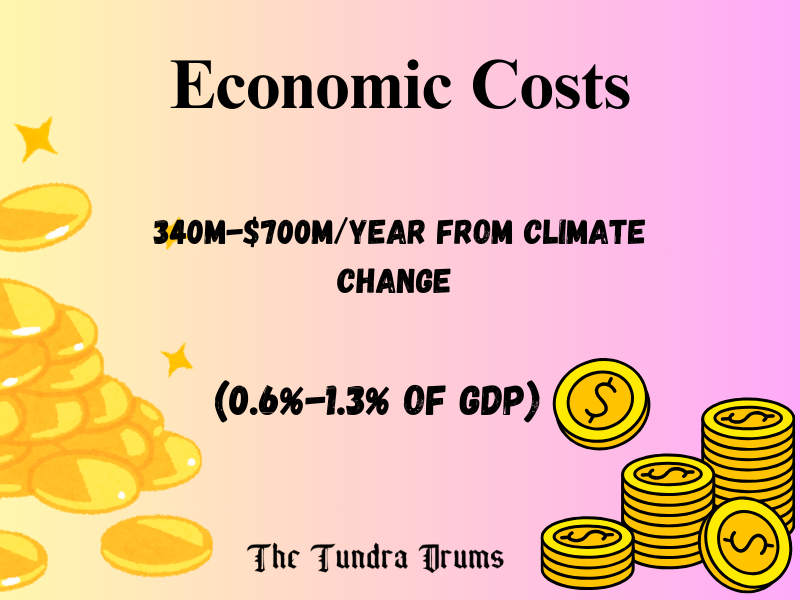
Estimated Financial Impacts:
| Impact Area | Estimated Cost |
| Infrastructure Damage | $110 – $270 million per year |
| Economic Loss (Statewide) | $340 – $700 million per year |
| Federal Support Needed | $80 million per year |
| Potential Emergency Costs | Up to $25.8 billion |
| Contribution to State GDP | 0.6% to 1.3% |
Temperature Changes:
- Alaska’s temperatures are warming twice as fast as the global average.
- In Bethel, winters are getting milder. December temperatures, which used to drop to 20 below zero, now rarely fall below zero.
Infrastructure Costs:
- The warming climate is causing significant infrastructure damage in Alaska, which, assuming timely repairs, will cost between $110 million and $270 million annually.
- However, milder winters are helping reduce space heating costs, which offsets some of these expenses.
Economic Impacts:
- Climate change costs Alaska between $340 million and $700 million yearly, about 0.6% to 1.3% of the state’s GDP.
- The federal government may need to invest around $80 million yearly to support vulnerable communities like Bethel.
- Emergency response and recovery costs could skyrocket without action to as much as $25.8 billion.
Subsistence Lifestyle Impacts:
- Climate change also affects the region’s traditional subsistence lifestyle, increasing the financial burden.
Economic Sectors Affected by Climate Change in Bethel
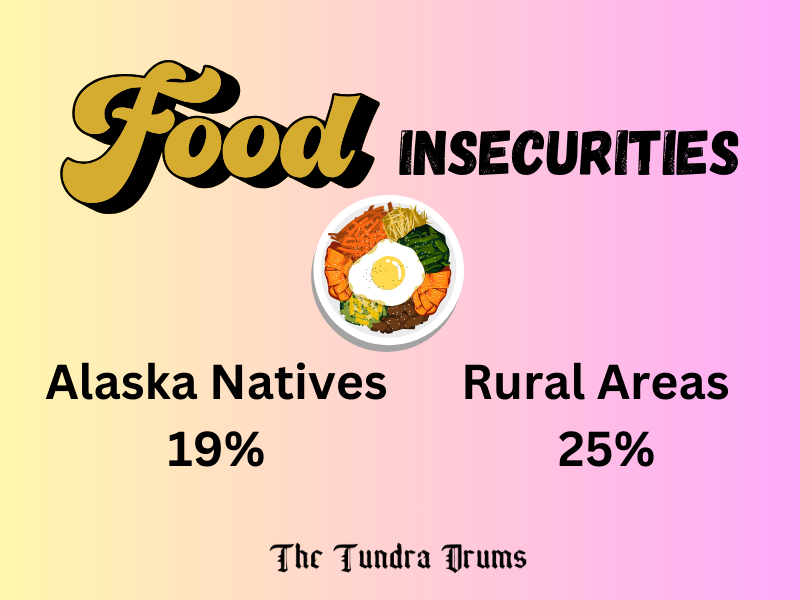
1. Infrastructure:
Climate change creates a big challenge for Bethel regarding keeping up its infrastructure with limited funds. The main issues are:
- Permafrost Thaw: When permafrost melts, it damages buildings and roads, leading to costly upkeep and changes. Bethel currently spends over $1 million yearly to fix its gravel roads. This cost might increase as longer winter thaws wear down road bases faster.
- Coastal Erosion: Higher sea levels and stronger storms are eating away at the coast, putting critical structures at risk. Bethel and nearby areas must spend a lot of money to protect or move essential buildings.
2. Transportation:
Climate change affects how people get around in Bethel in a few ways:
- Ice Road: The Kuskokwim River ice road takes more time to freeze each winter. It causes delays and makes people use planes more often. More accidents happen on weak ice now.
- Willow Growth: A longer growing season means more willows grow along roads, which means residents and management must take action to clean the roads and streets.
3. Subsistence Activities:
Weather shifts and animal migration changes affect subsistence activities in Bethel. Elders notice some animals they once hunted for food in winter no longer show up due to warmer temperatures. These unpredictable changes make it hard to plan for sustainable livelihoods, creating more economic uncertainty for families who depend on these sources.
4. Commercial Fishing:
Climate change threatens Bethel’s economy, which depends on commercial fishing. Warming waters and altered ecosystems can change fish populations, putting many Bethel residents’ income at risk.
Direct Financial Impacts on Bethel, Alaska Residents
- Higher Heating Bills: Heating costs have risen by about 10-15% in 2024 due to unpredictable winter temperatures.
- Increased Food Prices: Food costs are up by around 10% this year because of disrupted supply chains and reduced subsistence resources.
- Costly Home Repairs: Thawing permafrost has led to a 20% increase in home repair costs.
- Rising Medical Expenses: Health issues linked to climate change have caused a 12% increase in medical costs.
- Job Instability: Fishing and tourism jobs are at risk, leading to decreased income
Financial Resilience and Adaptation Strategies for Bethel Residents
Bethel is facing severe challenges due to climate change, making it important to develop financial resilience and adaptation strategies. These strategies are crucial for reducing the economic impact of climate change and ensuring the community’s long-term sustainability.
Key Strategies for Financial Resilience

- Adaptive Social Protection: Creating programs that respond quickly to climate shocks can help protect vulnerable people and small businesses. These programs offer support when it’s needed most during climate crises.
- Access to Financial Services: Improving access to savings, loans, insurance, and payment options is essential. These financial tools help residents prepare for, manage, and recover from climate-related challenges.
- Investment in Infrastructure: Building more vital infrastructure is key. Upgrading essential services ensures they continue functioning during climate events, helping prevent economic losses and strengthen community resilience.
- Public-Private Partnerships: Working with private companies through partnerships can boost financial resilience. This includes developing local insurance markets and using reinsurance to reduce risks for climate adaptation investments.
- Financial Literacy Programs: Teaching financial and digital skills can empower residents to make smart financial choices, improving their ability to handle climate-related challenges.
- Community Engagement: Involving local communities in climate planning strengthens resilience. Programs like the Adapt Y-K Delta plan encourage residents to work together to address the effects of climate change.
Final Verdict
The financial impact of climate change on Bethel profoundly affects everything from heating costs to local industry stability. To mitigate these challenges, Bethel residents must adopt strategies like improving energy efficiency, supporting healthcare access, and exploring renewable energy options. Proactive measures are essential to safeguarding the community’s economic future.


